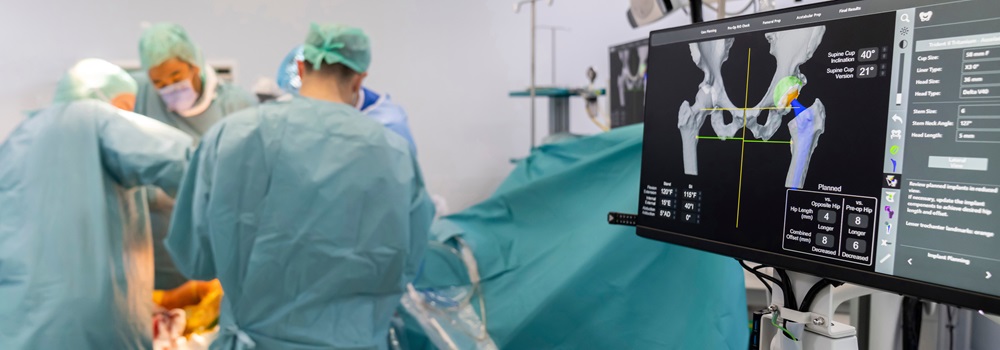Obesity and Total Knee Replacement: Understanding the Impact and Considerations
Total knee replacement (TKR), alternatively referred to as total knee arthroplasty, is a surgical procedure commonly Utilized for alleviating severe pain and disability resulting from knee osteoarthritis or other conditions. Obesity, as determined by one's body mass index (BMI), of 30 or higher, is a notable health issue globally. The association between obesity and total knee replacement is significant and presents both challenges and factors that must be taken into account to guarantee successful outcomes for patients. In this blog, we will investigate the consequences of obesity on total knee replacement and discuss important considerations for individuals undergoing this procedure.
The Impact of Excess Body Weight on Total Knee Replacement
Obesity poses unique challenges in the context of total knee replacement, impacting various aspects of the surgery and the overall outcome:
1. Surgical Complications
Obese individuals often have a higher risk of surgical complications during and after total knee replacement. These complications can include surgical site infections, wound healing problems, blood clots (deep vein thrombosis), and pulmonary embolism.
2. Joint Stability and Function
Excessive body weight adds extra strain to the knee joint. This can affect the stability and functionality of the artificial knee joint post-surgery, potentially leading to faster wear and tear and a decreased lifespan of the implant.
3. Rehabilitation and Recovery
Obesity can impede the rehabilitation and recovery process following surgery. The additional weight can make exercises and movement more challenging, potentially delaying the recovery and return to normal activities.
4. Pain Management
Managing post-operative pain can be more complex in obese patients due to their higher tolerance for pain medication and potential difficulties in administering appropriate doses.
Considerations for Total Knee Replacement in Obese Patients
When considering total knee replacement for obese individuals, a comprehensive approach is essential to mitigate risks and optimize outcomes:
1. Preoperative Assessment
Thorough evaluation prior to surgery is crucial. Assessments should include an evaluation of comorbidities, cardiovascular health, lung function, and anesthetic considerations specific to obese patients.
2. Weight Management
Encouraging weight loss before surgery can significantly reduce surgical risks and improve outcomes. A multidisciplinary approach involving dieticians, physical therapists, and psychologists may be beneficial in developing a tailored weight management plan.
3. Surgical Expertise
Choosing a surgeon experienced in operating on obese patients is vital. Surgeons with expertise in this area are better prepared to address the distinct challenges presented by obesity during the surgical procedure.
4. Implant Selection
Selecting the appropriate implant for obese patients is critical. Surgeons may opt for implants designed to withstand increased stress and pressure associated with higher body weight.
5. Postoperative Care and Rehabilitation
Individualized postoperative care and rehabilitation plans are crucial. Physical therapy and rehabilitation exercises should be adapted to suit the patient's mobility and weight-bearing capabilities.
6. Lifestyle Modifications
Encouraging a long-term commitment to adopting a healthy lifestyle, which includes a well-balanced diet and consistent exercise, can be beneficial to manage weight and maintain the integrity and longevity of the artificial knee joint.
Conclusion
Obesity significantly influences the outcome of total knee replacement. However, with careful planning, specialized care, and a focus on preoperative assessment and postoperative rehabilitation, individuals with obesity can still benefit from this life-changing procedure. It's important for healthcare providers and patients to work collaboratively to address the unique challenges that obesity presents and optimize the potential for a successful total knee replacement. As with any medical procedure, always seek guidance from your healthcare professional for customized advice and suggestions regarding total knee replacement, especially in the context of obesity.










